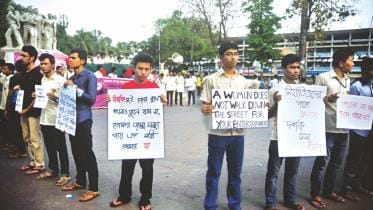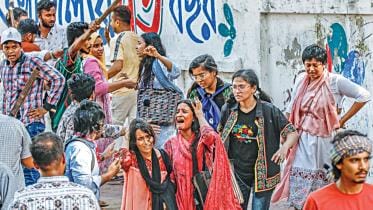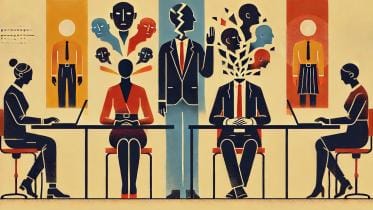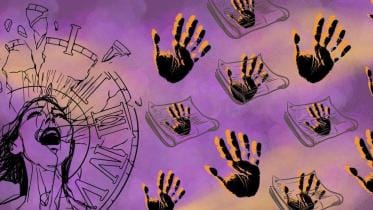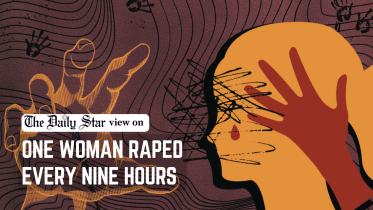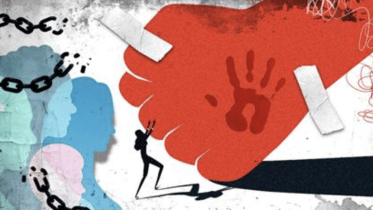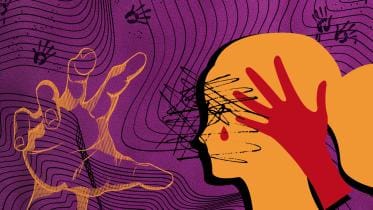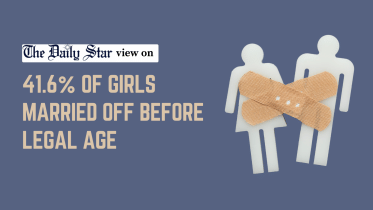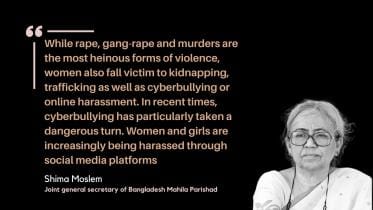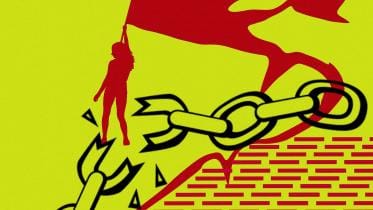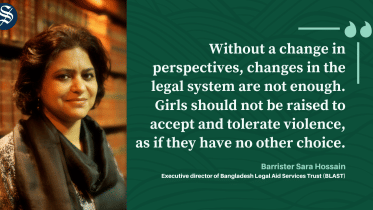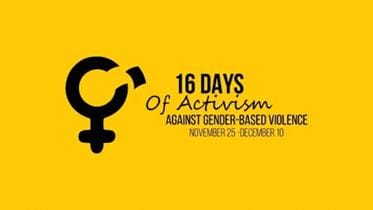gender-based violence
Can we finally address harassment and domestic abuse with deserved gravitas?
Let us begin with the sexual harassment ordinance. The most significant shift is symbolic and legal simultaneously as we deal with codification.
13 February 2026, 10:00 AM
16 Days of activism: Will the dystopia for women ever end?
TDS: The Women’s Affairs Reforms Commission made 423 recommendations. How much has been implemented?
9 December 2025, 18:12 PM
When the state thinks like a man
Muradnagar rape unmasked, yet again, the cruel face of the state as a male homologue.
4 July 2025, 03:00 AM
When will women be safe?
The responses painted a bleak and unsettling picture.
19 April 2025, 07:00 AM
Fear on the streets: a gift for women, from men
I am only asking—have we stopped standing by women?
9 March 2025, 03:07 AM
July Uprising: State forces, AL perpetrated gender-based violence
The United Nations fact-finding report has exposed disturbing accounts of gender-based violence during the July uprising last year, with women protesters facing physical assaults, rape threats, and arbitrary detention.
15 February 2025, 18:00 PM
The hidden cost of workplace oppression
Psychological violence in the workplace—rooted in patriarchy—undermines equity and well-being.
20 December 2024, 07:00 AM
Our chance to be heard
Changing mindsets and media action are key to ending violence against women.
9 December 2024, 12:30 PM
Piercing the invisibility of violence against Adibashi women
Recent violence in Bangladesh highlights systemic oppression against Indigenous women.
2 December 2024, 02:00 AM
Can Bangladesh prosper without gender equality?
Gender equality is not only important at an individual level, but also critical for any country's social and economic development.
30 November 2024, 06:00 AM
Fix the system to prevent rape
Existing justice mechanisms for rape crimes are not working
25 November 2024, 12:57 PM
Empathy is missing for survivors seeking justice
Examining Bangladesh's challenges in supporting survivors of gender-based violence.
25 November 2024, 03:00 AM
At least one woman raped nearly every 9hrs
Marium was only 10 years old when she faced the horrors of sexual violence in 2018..
24 November 2024, 18:00 PM
Failure to check rising child marriage is inexcusable
Latest BBS data reveals staggering increase in incidents
29 March 2024, 08:18 AM
‘Violence against women is a violation of human rights’
Our society still considers violence against women to be a women's issue and holds the view that only women should talk about it or protest it.
23 December 2023, 03:00 AM
To combat gender-based violence, do away with systemic bias
Gender inequality and violence as the outcome of a society are symptomatic of the ethos that shape policies, family structures and opportunities for men and women.
7 December 2023, 02:00 AM
Why can’t we contain child marriage?
Continued failure of relevant authorities is unacceptable
30 November 2023, 10:38 AM
21pc of house maids face physical abuse, says BILS study
Around 21 percent of female domestic workers in Dhaka experience physical abuse at the workplace, while 91 percent don’t know about the hotline number 999 to seek help for gender-based violence, said a study conducted by Bangladesh Institute of Labour Studies.
2 October 2023, 18:00 PM
‘Change laws that undermine women’s position in the family’
Barrister Sara Hossain speaks on where we go next in dealing with violence against women in Bangladesh
8 December 2022, 16:00 PM
Rape survivors face cruel realities
Sabina, 33, a young professional from Rangpur, tries hard to forget about the horrific day in 2019, when she was raped by her uncle. But even after three years the memory of her ordeal is fresh and has turned her days into a harrowing quest for survival.
28 November 2022, 01:30 AM







